Wine is almost a miracle if it's a good wine. It is an art form.
When I first met the wine-maker, Nina Coolsaet, I knew I needed more time to talk with her … I had questions.. When she spoke of her wine, she had surprised me, telling me they were making wines our children can drink.
A wine made, with much-loved children in mind, was a wine I wanted to know more about. So, one Saturday in the Autumn of 2013, we sat down and talked for awhile.
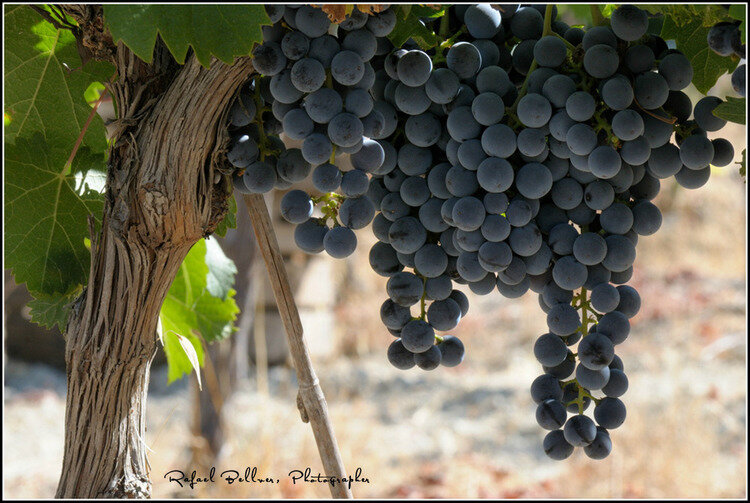
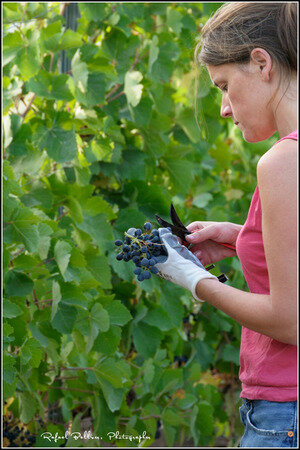
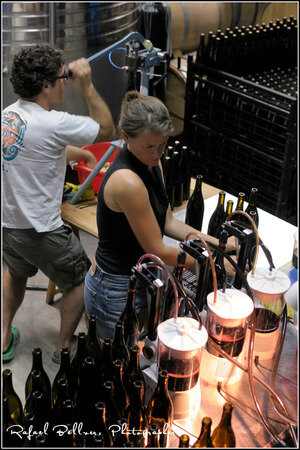
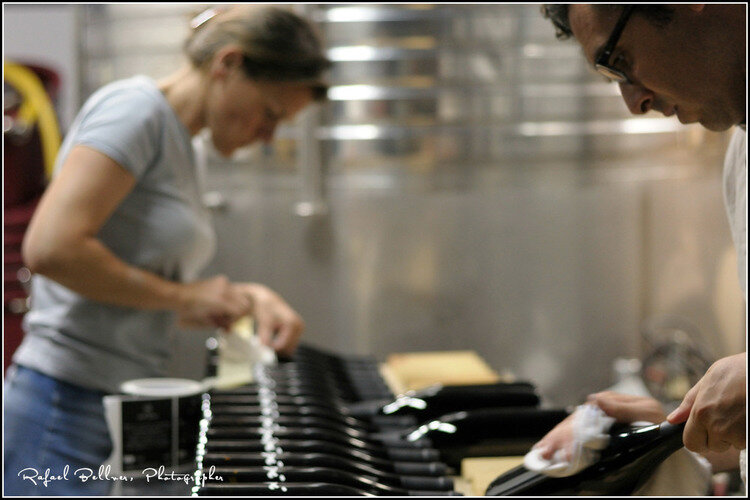
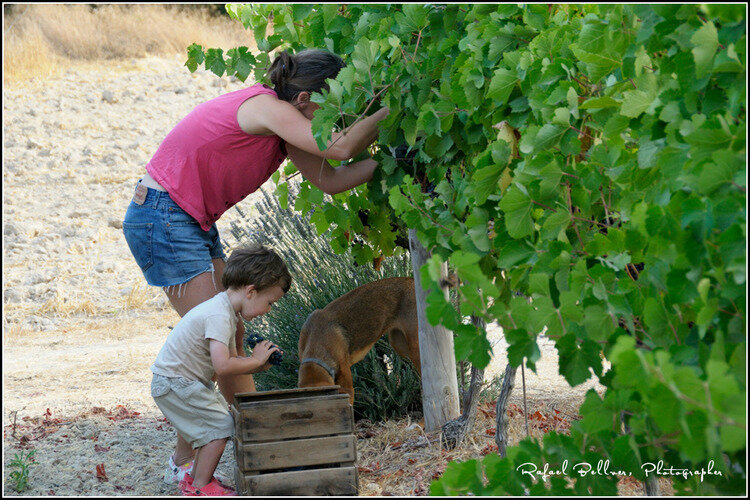
You told me that you're making wine your children can drink. What did you mean exactly?
We're not doing this for ourselves. We want to create wine for the next generation. It's a hobby more than a business for us. We realise that our children might not want to continue with what we're developing now but we intend that, when they're 18 or 20 years old, they can drink our wine knowing that it was made with them in mind. That's that drive behind it all.
This is a very different concept when it comes to wine-making. It means we're not making the type of wine you sell immediately. We age the wine for more than a year and because it's a natural wine we put it into the bottle knowing it needs time to harmonise and increase in complexity.
The pH level of wine comes from the grapes and that level depends on multiple factors – things like the climate and the soil. If we have more sun one year then the grapes will experience a loss of acidity. Knowing this means that one of the most difficult moments in wine production is knowing exactly when to harvest the grapes. It is all about finding that balance between maintaining acidity and allowing the grapes to mature. You know that the acidity is decreasing as the grapes mature so you need to understand that moment when the balance between them is right.
I guess it's obvious by now … I find the idea that you are creating something for your babies somehow perfect in terms of end results.
It is a life project, a style of living, and a lot of work but we want to do it because we love the results. It is a passion that we want to share with people. And if other people like our wine too, then that is the best result we can hope for. We're not making the wine for money, it's just the opposite really.
And although our wine is not sold as a natural wine, our process is as natural as possible. We don't add things like yeast. We recognise that each grape has its own yeast and that if you add a different yeast it is like adding an ingredient that has nothing to do with your grapes.
You trained as a fish nutritionist. How did the move from your chosen career into the world of wine happen?
Fish nutrition and wine-making are both about biology, microbiology, and biochemistry. And when I was working with fish I was reading about the wines. They are both very complex. There are so many factors that influence outcome. Wine is a natural product. You can control it a little but it has its own life. In the end the two areas have so many things in common when you examine what is happening at a bio-chemical level. So, for me, the two subjects are not so different.
Are you more passionate about fish nutrition or wine-making?
I studied aqua-culture for two years after my degree in bio-engineering because I had this idea that fish, as a source of protein, was the most important in the world. Aquaculture is a growing field, one that is still being developed.
Wine is similar, in that it is a process you can't control 100% . For me aquaculture is business and our wine is passion.
You and your husband, Alfredo, work at your day-jobs during the week, you have small children, and then you make wine on the weekends. It seems like a huge workload. (You can read their story, in their words, over here)
We do almost everything ourselves and fortunately, we do have a lot of help from Alfredo's family when we have peaks of workload like harvesting and bottling. My husband does most of the wine-making while I am busy taking care of the children, receiving visitors, doing paperwork, marketing and etc … During harvesting Alfredo works during the day and then at 8pm he heads off to the bodega to work there. Weekends, holidays ... you will find us all there at the bodega.
What grapes do you use in your Avi wine?
It is 60% Syrah, 28% Cabernet Sauvignon, with a little Merlot. Then we have one barrel of grenache. That's the mix. We also have a seperate grenache wine called Nineta (referring to our daughter). Then we have the Luka wine named after our son. We will age that first selection of the best 3-4 barrels for one more year in French oak barrels which means it will have spent a minimum of two years in barrels. This selection needs much more time to be drinkable. More time in the bottle too, at least 2 years.
We produced a small amount of our Avi wine - between six and seven thousand bottles.
You use your own grapes?
We do. We have two hectares in the front of the masia for the Syrah, the Cabernet Sauvignon and the Merlot. We grow the grenache away from our property, it's about 5 minutes by car. We started in 2009 and we control everything. We rent the extra hectare and we do everything ourselves, from pruning through to harvesting, as we believe it is necessary in order to create the product we want.
The vines are15 year old. The grenache is autochtonous the area. The climate doesn't work for the grapes usually associated with Spain – the Monastrell, and we are located at high altitude. It is colder in winter and has a higher rainfall which means we cant get the grapes to mature in time. Then we also live in a micro-climate, so if you travel twenty kilometres from us you will find the climate is different. We don't have irrigation, it's all natural. We really depend on the gods of the weather.
Your story seems like a beautiful story of family.
It was really important for me to have roots. To feel them. And for Alfredo and the children too. My mother-in-law was born at our bodega. She lived there until she was six. They left fifty-five years ago and the house was empty for a long time. Of course, we have changed everything. You should have seen how it was when we began.
In the 1900s there were a lot of vineyards in our area but a disease attacked them and every vine had to be destroyed. Before this happened, our area had been important for grapes and our wines used to be exported to Bordeaux We are really starting over with wine-making here.
And your wine?
It's like this … you only have one chance a year to make good wine. It's not a factory process. Firstly, you depend on the climate and then it's about respecting the grapes. The grape is where everything begins and if you don't have a good grape you can't make good wine. And if you do have a good grape then the art is in respecting the grape so you get the very best wine.
There are so many things that can go wrong along the way. Wine is almost miracle if it's a good wine. It is an art form.
Imagine … the wine rests in the barrel for one year. A lot happens to the wine while it is in there. If you leave a little air inside, if it's not really full … after a few days or weeks you have to throw the whole barrel away. We had it happen with a Luka wine once. A barrel had a gap and it was over.
The process itself is very much a mix of passion and creativity. Science plays a role and is very important but everything else about wine-making is about creativity and sensitivity.
We believe that it is important for the children to see how to create something, to work for it ...to create something beautiful from nothing.
My husband has a vision. He has patience and he really believes in our wine. Some years ago he said we need to have a bodega. He was determined and it is hard in the beginning … or at least until you can drink the wine. We waited from 2005 till 2009.
The first bottles were so important. Fiona Morrison is a master of wine. She is a top taster who owns Thienpont Wineshe tried our first wine at a dinner party. We were so nervous. She tasted it and said, 'This I must have. Bring me everything you have'.
That was the starting point for us. We realised that we could come up with the wine, that we could do this thing that we were passionate about but it's more than just the wine … it's also about people, like those who come to our house at the weekends. We recently had a weekend where we realised that it was the first time in six months that we didn't have visitors. We always have people visiting but that's a good thing, and another reason for doing what we do.
My dream when I was young was to open the doors of my house and invite people in. You see them recognise what we have created here. That is worth a lot to me.
You can view a series of Bodega Mas L'Altet photographs by Rafael Bellver by clicking here
